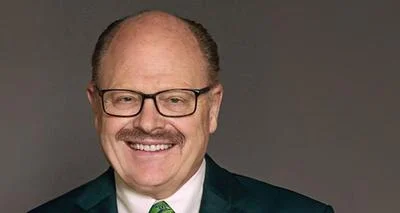U.S. Attorney’s Office Eastern District of Michigan issued the following announcement on April 1.
In response to the Coronavirus (COVID-19) pandemic, United States Attorney Matthew Schneider and FBI Special Agent in Charge for Michigan Steve D’Antuono have announced an effort to investigate and prosecute hoarders of scarce medical supplies in the Eastern District of Michigan.
The Justice Department is receiving reports of people using the pandemic to hoard vital medical supplies and then sell them at excessive prices, all at the expense of the health and safety of Americans. Hoarding and price gouging make it more difficult to provide necessary medical supplies to our health care providers and first responders.
On March 23, 2020, the President issued an Executive Order pursuant to Section 102 of the Defense Production Act, which prohibits hoarding of designated items. The order authorizes the Secretary of Health and Human Services (“HHS”) to protect scarce healthcare and medical items by designating particular items as protected under the statute. Once an item is designated, the statute makes it a crime for any person to accumulate that item either (1) in excess of his or her reasonable needs or (2) for the purpose of selling it in excess of prevailing market prices. Violators may be punished by up to one year imprisonment and/or up to a $10,000 fine. See 50 U.S.C. §§ 4512, 4513.
“We’re not going after regular people in Michigan who are stocking up in a reasonable manner, or businesses who are making smart storage decisions,” said United States Attorney Matthew Schneider. “But if you’re hoarding goods far above what you need, or if you’re trying to rip off the people of Michigan by profiting from the pandemic, we will be targeting you.”
United States Attorney Schneider and FBI SAC D’Antuono will work cooperatively with HHS, the Justice Department’s Criminal Division, and the Justice Department’s COVID-19 Price Gouging and Hoarding Task Force to identify potential cases. To report Price Gouging and Hoarding, Michigan residents are urged to contact the National Center for Disaster Fraud Hotline at (866) 720-5721 or disaster@leo.gov or COVID-19 Fraud Coordinator/ Assistant United States Attorney John Neal, at (313) 226-9644.
The Secretary of HHS has designated the following items as scarce or threatened materials:
1. N-95 Filtering Facepiece Respirators, including devices that are disposable half-face-piece non-powered air-purifying particulate respirators intended for use to cover the nose and mouth of the wearer to help reduce wearer exposure to pathogenic biological airborne particulates
2. Other Filtering Facepiece Respirators (e.g., those designated as N99, N100, R95, R99, R100, or P95, P99, P100), including single-use, disposable half-mask respiratory protective devices that cover the user’s airway (nose and mouth) and offer protection from particulate materials at an N95 filtration efficiency level per 42 CFR 84.181
3. Elastomeric, air-purifying respirators and appropriate particulate filters/cartridges
4. Powered Air Purifying Respirators (PAPR)
5. Portable Ventilators, including portable devices intended to mechanically control or assist patient breathing by delivering a predetermined percentage of oxygen in the breathing gas
6. Drug products with active ingredient chloroquine phosphate or hydroxychloroquine HCl
7. Sterilization services for any device as defined in section 201(h) of the Federal Food, Drug, and Cosmetic Act and sterilizers as defined in 21 CFR 880.6860, 880.6870, and 880.6880, including devices that already have FDA marketing authorization and those that do not have FDA marketing authorization but are intended for the same uses
8. Disinfecting devices intended to kill pathogens and other kinds of microorganisms by chemical means or physical means, including those defined in 21 CFR 876.1500, 880.6992, and 892.1570 and other sanitizing and disinfecting products suitable for use in a clinical setting
9. Medical gowns or apparel, e.g., surgical gowns or isolation gowns
10. Personal protective equipment (PPE) coveralls, e.g., Tyvek Suits
11. PPE face masks, including any masks that cover the user’s nose and mouth and may or may not meet fluid barrier or filtration efficiency levels
12. PPE surgical masks, including masks that covers the user’s nose and mouth and provides a physical barrier to fluids and particulate materials
13. PPE face shields, including those defined at 21 CFR 878.4040 and those intended for the same purpose
14. PPE gloves or surgical gloves, including those defined at 21 CFR 880.6250 (exam gloves) and 878.4460 (surgical gloves) and such gloves intended for the same purposes
15. Ventilators, anesthesia gas machines modified for use as ventilators, and positive pressure breathing devices modified for use as ventilators (collectively referred to as "ventilators"), ventilator tubing connectors, and ventilator accessories as those terms are described in FDA’s March 2020 Enforcement Policy for Ventilators and Accessories and Other Respiratory Devices During the Coronavirus Disease 2019 (COVID-19) Public Health Emergency located at https://www.fda.gov/media/136318/download
Original source can be found here.




 Alerts Sign-up
Alerts Sign-up